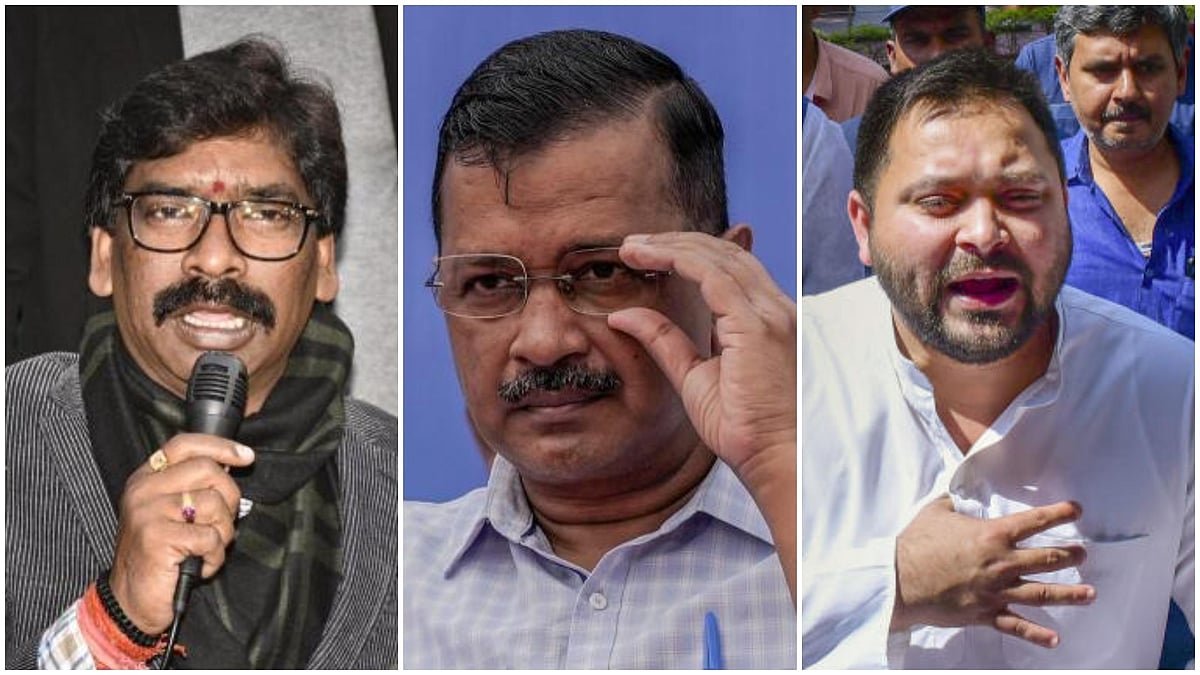There is a growing tendency for lower courts to automatically deny bail in politically sensitive cases, even when legal grounds justify such a denial. In politically charged cases, the judiciary often faces subtle or overt pressure from the executive. This can manifest in controversial judicial appointments, transfers, or political backlash when decisions go against government interests. Investigative agencies often weaponize legal processes to punish individuals without ensuring conviction. The practice of prolonging detention for “non-cooperation” during interrogation is frequently used as an excuse to keep incarcerated, even when concrete evidence is lacking. Courts can play a vital role in the preservation of liberty. It is only in them that people have whatever little trust remains. If they too fail to discharge their responsibilities, then the freedom enshrined in the Constitution will remain only on paper.
The Indian judiciary is tasked with maintaining independence, especially in politically sensitive cases, but it faces many challenges. Recent judgments, such as the Arvind Kejriwal excise policy case and the Bilkis Bano case, highlight these tensions. There are numerous instances of agencies targeting not just political opponents but also journalists, students, and academics who criticize the government and its policies, particularly around elections. What is more worrying is that such voices of dissent are often suppressed by not being granted bail under laws that place the onus on the accused to prove their innocence. Sadly, such an onus can never be fulfilled, and ironically, instead of being lenient, the courts have retained these draconian provisions.
Challenges in Ensuring Judicial Independence In politically charged cases, the judiciary often faces subtle or overt pressure from the executive. This can manifest in controversial judicial appointments, transfers, or political backlash when decisions go against government interests. Investigative agencies often weaponize legal processes to punish individuals without ensuring conviction. The practice of prolonging detention for “non-cooperation” during interrogation is frequently used as an excuse to continue incarceration, even when concrete evidence is lacking. This practice undermines the right against self-incrimination enshrined in Article 20(3) of the Constitution.
There is a growing trend of lower courts automatically denying bail in politically sensitive cases, even when legal grounds justify such a denial. Both Justice Bhuyan and Justice B.R. Gavai have highlighted this issue, noting that trial courts and high courts often fail to protect individual liberty, especially in high-profile cases. Justice Bhuyan’s criticism of Kejriwal’s arrest reflects a refusal to accept vague justifications such as “evasive answers” or “lack of cooperation” as grounds for prolonged detention. His judgment rebukes the CBI for using procedural delays to deny liberty and emphasizes that such actions violate the spirit of constitutional safeguards. This is in contrast to Justice Surya Kant’s approach, which accepted the CBI’s reasoning without a thorough investigation. Bhuyan’s detailed investigation underlines the need for vigilance in upholding individual liberty.

The release of convicts in the Bilkis Bano case, despite being convicted of heinous crimes, similarly raises concerns about political influence on judicial outcomes. The case exemplifies how post-conviction relief can be manipulated through amnesty laws, often at the expense of justice for victims of politically motivated violence. One cause of the crisis is related to the courts. Bail is often denied even in cases where the period of police custody has expired or a chargesheet has been filed. Somewhere the judicial system is not functioning up to established standards. The lack of a level playing field jeopardises the legal process, which should be fair and flawless. It is also not hidden from the public eye that certain judicial officers are appointed to key positions, further arousing suspicion.
Overall, the judicial system is not functioning effectively, especially in the matter of bail. The value of liberty is not being given the importance it deserves by the Constitution and even the Supreme Court. The reluctance shown by judicial officers in granting bail is a matter of grave concern. This is particularly evident in cases where the noose is set on political rivals. In such cases, even if the investigation is completed, bail is not granted. This relief is not granted even at the top judicial level. While the judiciary strives to maintain independence, politically sensitive cases expose the chinks in its armor. The Arvind Kejriwal and Bilkis Bano cases underscore the challenges to judicial integrity, especially when faced with executive pressure and procedural manipulation. To safeguard its independence, the judiciary must resist external pressures and discharge its duty to protect individual liberty, especially in the face of politically charged situations.
In response to these threats to judicial independence and integrity, it is imperative to put in place safeguards and countermeasures to protect judges from executive manipulation and control. First and foremost, judicial independence must be enshrined in law and upheld as a fundamental principle of democratic governance free from executive interference or intimidation. Efforts to safeguard judicial independence should include measures to protect judges from external pressure, ensure their safety and well-being, and preserve their autonomy and impartiality in the performance of their duties. In addition, transparency and accountability mechanisms should be strengthened to promote public confidence in the judiciary and counter misinformation and propaganda spread by the executive. This includes enhancing access to judicial proceedings and judgments, promoting open dialogue and public participation in judicial matters, and holding the executive accountable for any attempt to undermine judicial independence or integrity. Additionally, strong protections for freedom of expression, freedom of the press, and digital rights are essential to safeguard judicial independence and prevent executive censorship or manipulation of the media.





